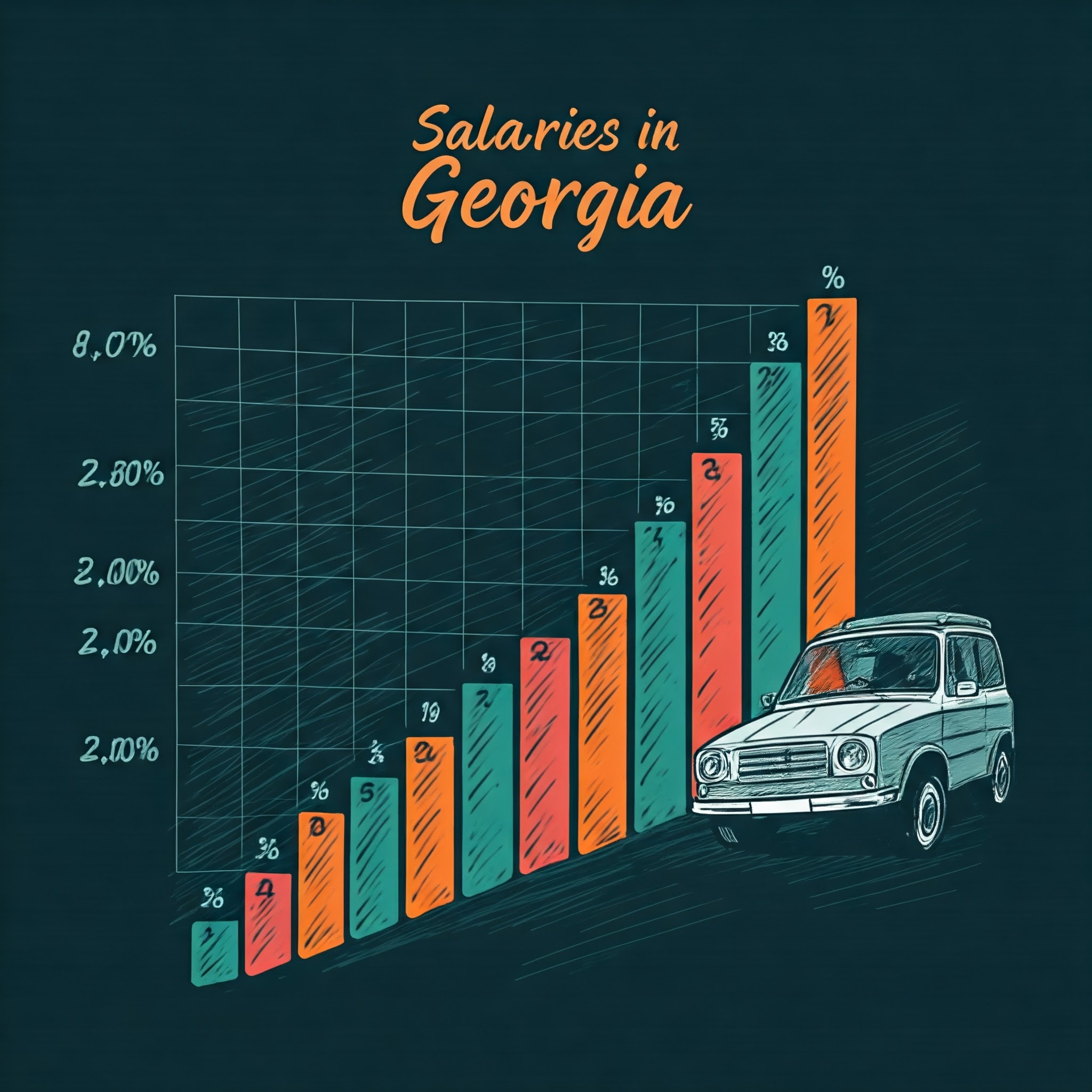Georgia, known as the Peach State, is a southeastern gem of the United States with a rich cultural history, diverse economy, and burgeoning industries. Salaries in Georgia reflect the state’s economic diversity, shaped by factors such as industry, geographic region, and workforce trends. From the bustling streets of Atlanta to the rural farmlands, Georgia’s job market offers varied opportunities and earnings.
Overview of Georgia’s Economy
Georgia has a dynamic economy supported by key sectors such as agriculture, logistics, technology, manufacturing, film production, and finance. Atlanta, the state’s capital and largest city, is a major economic hub in the Southeast, attracting businesses, entrepreneurs, and skilled professionals.
Georgia’s cost of living, which is generally below the national average, also plays a significant role in how salaries are perceived and distributed across the state. While the state offers competitive salaries in various industries, disparities exist between urban and rural areas.
Average Salaries in Georgia
The average annual salary in Georgia is approximately $56,000, closely aligning with the national average. However, this figure varies significantly depending on occupation, education level, and location.
Here’s a breakdown of average salaries across some major industries in Georgia:
- Healthcare and Medical Professions: Healthcare is one of Georgia’s largest employers, with physicians, surgeons, and specialized nurses earning some of the highest wages in the state. Salaries for registered nurses average around $75,000, while surgeons and other specialists often earn six-figure incomes.
- Technology: Georgia is home to a growing technology sector, especially in Atlanta’s Midtown area, which has been dubbed “Tech Square.” Software developers, data analysts, and IT professionals earn an average salary of $90,000 to $110,000 annually.
- Logistics and Transportation: With Hartsfield-Jackson Atlanta International Airport and the Port of Savannah, Georgia is a logistics powerhouse. Workers in this sector, such as supply chain managers, earn between $60,000 and $85,000 annually.
- Film and Entertainment: Dubbed the “Hollywood of the South,” Georgia’s film industry has boomed in recent years. Professionals in film production, editing, and set design earn competitive wages, with some specialized roles exceeding $100,000 annually.
- Agriculture: As a leader in poultry, peanuts, and peaches, Georgia’s agricultural industry employs many workers in farming and related roles. Salaries in this sector are often lower, averaging between $30,000 and $50,000.
- Education: Teachers in Georgia earn an average of $60,000 annually, with salaries varying based on district and experience level. Efforts to increase teacher pay have gained momentum in recent years.
Regional Variations in Salaries
Salaries in Georgia vary widely depending on location. Urban areas, particularly Atlanta, offer higher wages compared to rural regions.
- Atlanta Metro Area: Atlanta is Georgia’s economic engine, offering high-paying jobs in industries like finance, technology, and healthcare. The average annual salary in Atlanta is approximately $65,000, with opportunities for significant upward mobility in high-demand sectors.
- Savannah: As a coastal city and logistics hub, Savannah provides competitive salaries in shipping, tourism, and manufacturing. The average salary in Savannah is slightly below Atlanta’s, at around $50,000 annually.
- Augusta: Known for its healthcare and military presence, Augusta offers average salaries of $48,000, with higher earnings for professionals in healthcare and cyber security.
- Rural Areas: In rural Georgia, where agriculture dominates, salaries tend to be lower. The average wage in these regions ranges from $35,000 to $45,000, reflecting the dominance of lower-paying industries like farming and retail.
Industry-Specific Salary Trends
- Tourism and Hospitality: Tourism contributes significantly to Georgia’s economy, particularly in cities like Savannah and Atlanta. Salaries in this industry range from minimum wage for entry-level positions to $50,000 or more for managerial roles.
- Finance and Business: Georgia is home to major corporations like The Coca-Cola Company, Delta Air Lines, and Home Depot. Business and finance professionals in these companies earn competitive salaries, often exceeding $100,000 for executive roles.
- Manufacturing: Georgia’s manufacturing sector includes automotive production, aerospace, and textiles. Skilled workers and managers in this sector earn between $50,000 and $80,000 annually.
- Energy and Utilities: With significant investments in renewable energy and traditional utilities, Georgia’s energy sector offers salaries averaging $70,000, with higher earnings for engineers and technical specialists.
Cost of Living and Its Impact
Georgia’s cost of living is generally lower than the national average, making salaries in the state stretch further. Housing is particularly affordable in many areas outside of Atlanta, allowing residents to enjoy a higher quality of life on moderate incomes.
However, Atlanta’s booming population and demand for housing have led to rising costs in the metro area, impacting the purchasing power of residents. Professionals moving to Atlanta must weigh the city’s higher salaries against its higher living expenses.
Future Trends in Salaries
Several trends are likely to shape salaries in Georgia in the coming years:
- Technology Growth: Atlanta’s tech ecosystem continues to expand, with startups and established companies creating high-paying opportunities.
- Infrastructure Investment: Planned infrastructure projects, including expansions at the Port of Savannah and transportation upgrades, may boost salaries in construction and logistics.
- Minimum Wage Increases: Although Georgia’s state minimum wage is currently one of the lowest in the country, efforts to raise wages to a livable level could significantly impact earnings for low-income workers.
- Healthcare Demand: As Georgia’s population grows and ages, the demand for healthcare professionals will increase, likely driving up salaries in this critical industry.
Conclusion
Salaries in Georgia reflect the state’s diverse economy, regional differences, and evolving job market. While wages vary widely across industries and locations, Georgia’s relatively low cost of living and strong job growth make it an attractive place to live and work. For job seekers and employers alike, understanding the factors that influence salaries in Georgia is essential for navigating the state’s dynamic economic landscape.




